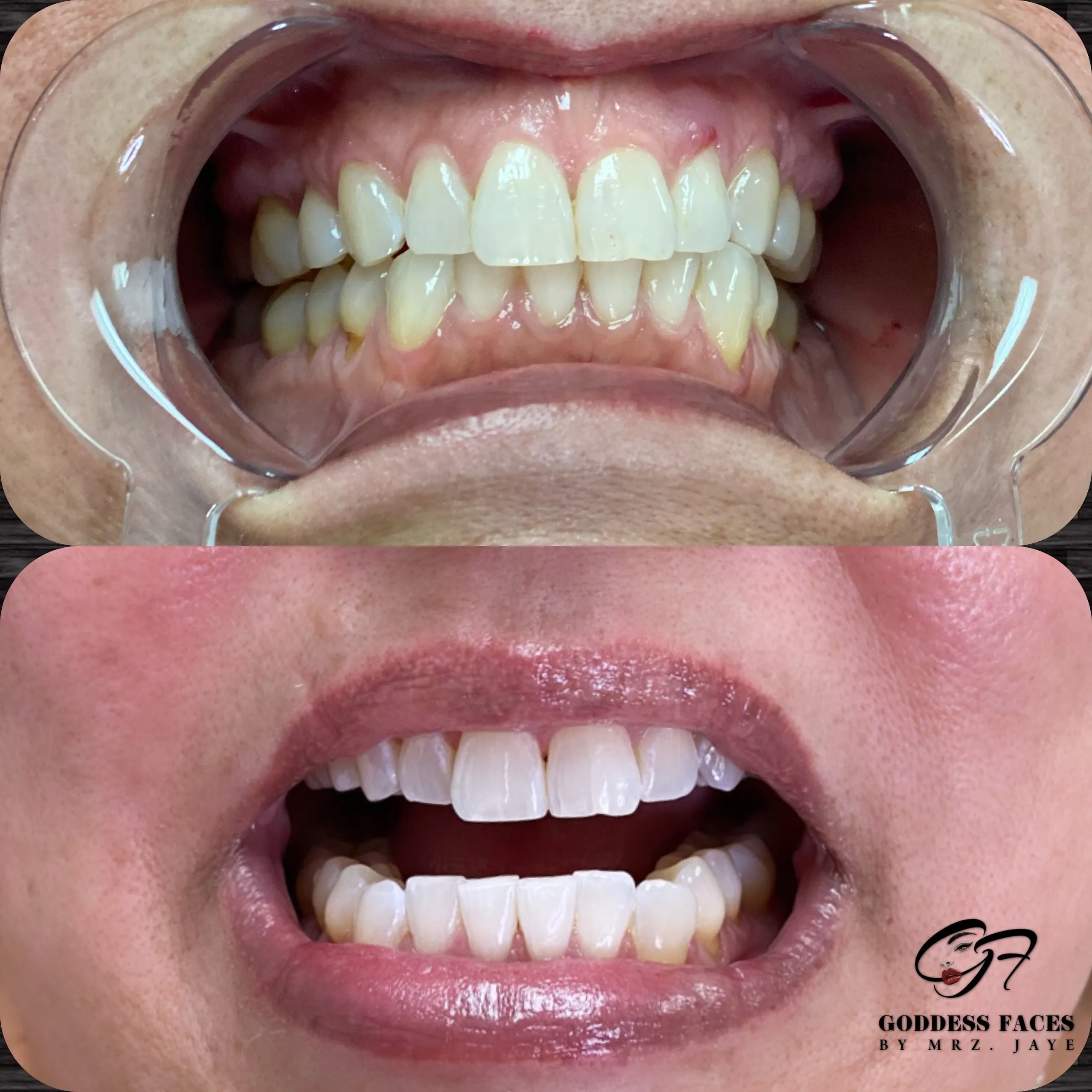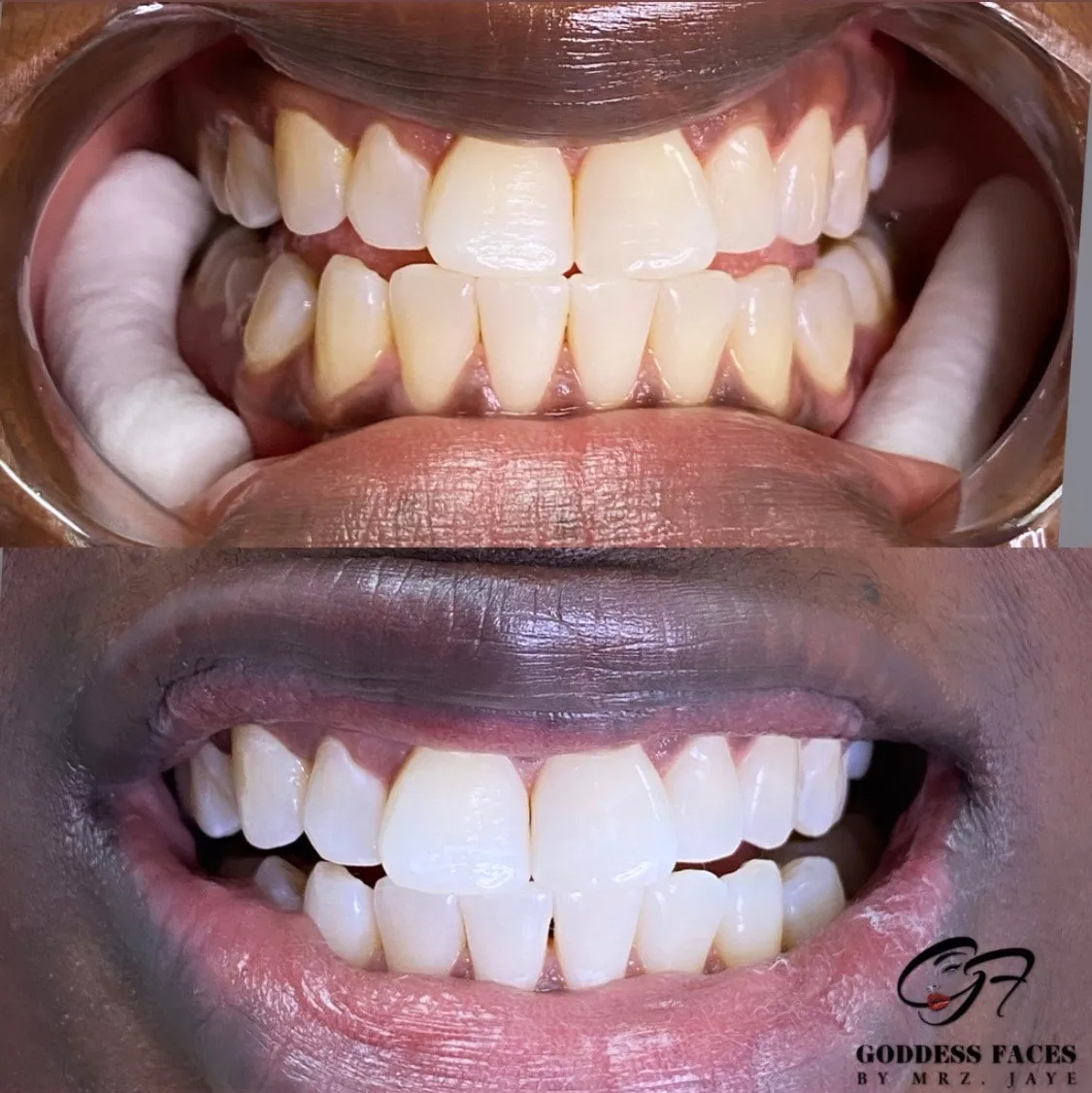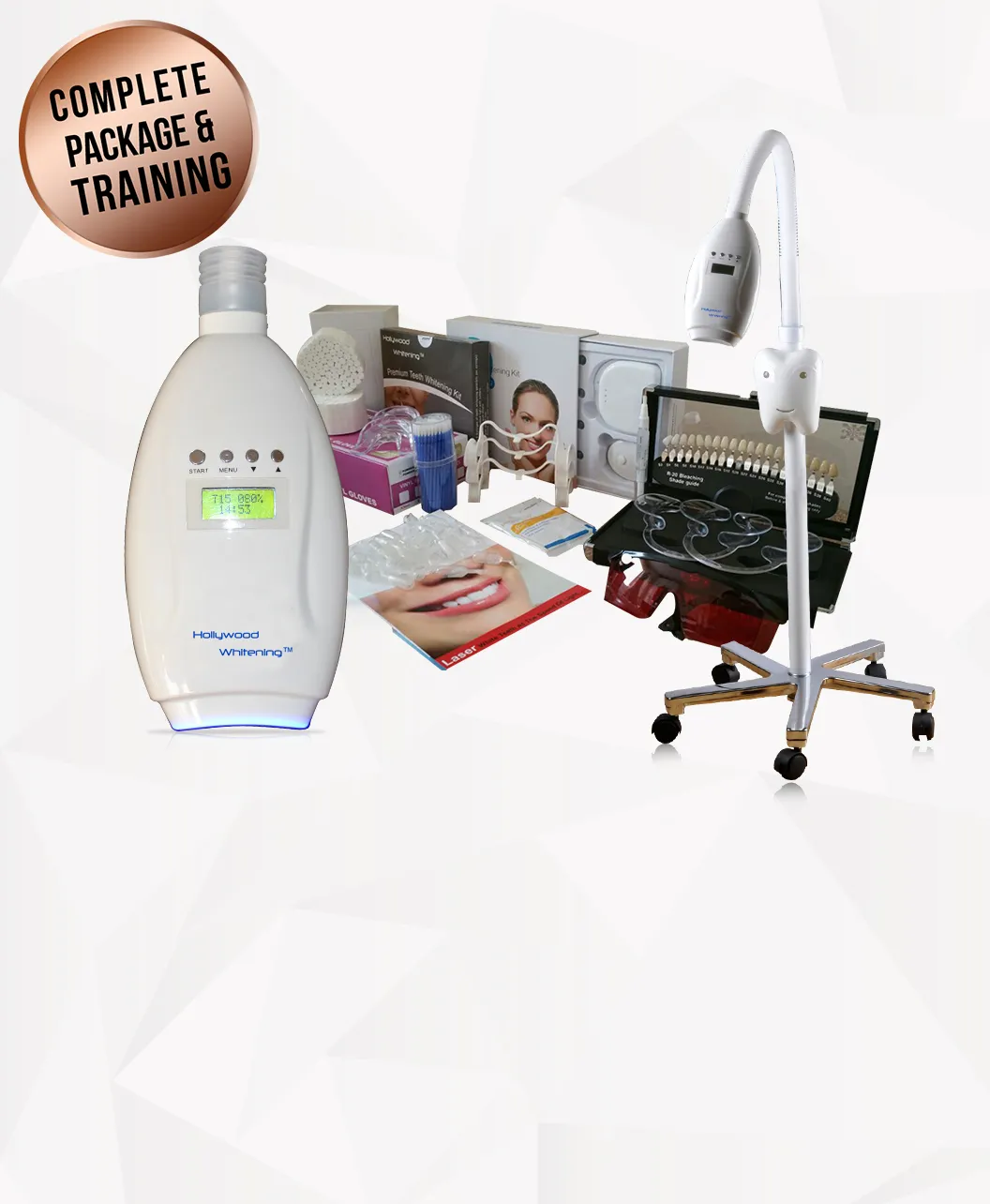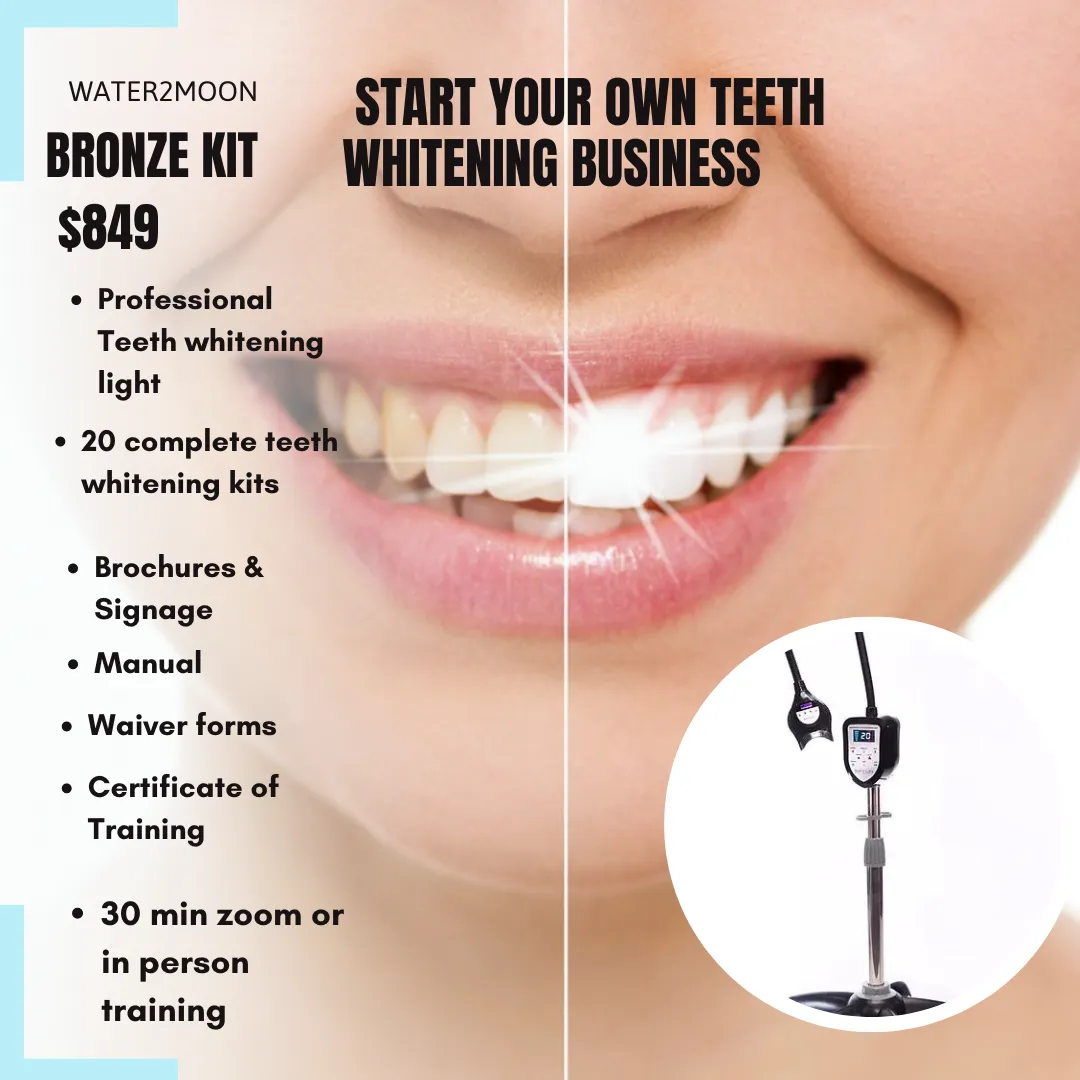Understanding Teeth Whitening Training
Teeth whitening training is a specialized program designed to educate individuals on the techniques, products, and safety protocols associated with professional teeth whitening. This training is essential for anyone looking to offer teeth whitening services, ensuring they can provide effective and safe treatments to clients. Whether you are a dental professional seeking to expand your skillset or an individual looking to start a career in the beauty industry, understanding the fundamentals of teeth whitening is the first step. Proper training not only equips you with the necessary skills but also ensures compliance with relevant regulations and standards. The demand for teeth whitening services continues to grow, making this training a valuable investment for career advancement and business opportunities.
What is Teeth Whitening Training
Teeth whitening training encompasses a comprehensive curriculum covering various aspects of the teeth whitening process. This includes understanding the different types of whitening treatments, the science behind how they work, and the products used. Trainees learn about client assessment, including identifying the appropriate candidates for whitening and assessing their oral health. They are also taught about contraindications and potential side effects. Additionally, the training covers safety protocols, hygiene practices, and how to handle client consultations effectively. Hands-on practice is a crucial component, allowing trainees to apply the techniques and gain practical experience under supervision. The objective is to provide a well-rounded education that prepares individuals to perform teeth whitening procedures safely and confidently.
Benefits of Teeth Whitening Training

The benefits of undergoing teeth whitening training are numerous. First and foremost, it ensures that you have the knowledge and skills to provide safe and effective treatments, minimizing the risk of complications. Training helps to build credibility and trust with clients, as they can be confident in your expertise. It also provides a competitive edge in the market, allowing you to offer professional-grade services. Furthermore, training enables you to comply with industry regulations and ethical standards, protecting both you and your clients. By staying current with the latest techniques and products, you can offer the best possible results. Additionally, training opens up opportunities for career advancement and can be a valuable asset for starting your own business. It enhances the overall satisfaction of clients, leading to positive word-of-mouth referrals.
How to Get Certified in Teeth Whitening
Obtaining certification in teeth whitening involves several key steps. First, you need to research and identify accredited training programs that meet industry standards. These programs should be recognized by relevant professional bodies. Once you have identified a suitable program, you will need to check the eligibility criteria, which may include educational background, professional licenses, and age requirements. Next, enroll in the program and complete the required coursework and practical training. This typically involves a combination of theoretical instruction and hands-on practice. Upon completion of the course, you will need to pass a certification exam to demonstrate your understanding of the material. The exam may be written, practical, or both. Finally, once you have successfully passed the exam, you will receive your certification, allowing you to offer teeth whitening services professionally.
Research Accredited Programs
Thorough research is crucial when selecting a teeth whitening training program. Look for programs that are accredited by reputable organizations, as this indicates that the curriculum and training meet established standards. Check the program’s reputation, reviews, and testimonials from past students to gauge its quality and effectiveness. Consider the experience and qualifications of the instructors, as they play a vital role in your learning experience. Ensure that the program covers all essential topics, including the science of teeth whitening, various techniques, and safety protocols. Also, inquire about the availability of hands-on training and practical experience. The duration and cost of the program are also important considerations, as they should align with your budget and schedule. Compare different programs and select the one that best meets your needs and career goals. Verify that the certification you receive upon completion is recognized and respected within the industry.
Check Eligibility Criteria

Before enrolling in a teeth whitening training program, carefully review the eligibility criteria. These criteria can vary depending on the program and the region. Common requirements include a minimum age, typically 18 years old. Educational prerequisites may also be in place, such as a high school diploma or equivalent. Some programs may require prior experience or certification in a related field, such as dental assisting or cosmetology. If you are a licensed dental professional, you may have different eligibility requirements. Ensure that you meet all the prerequisites before applying to avoid any delays or disappointment. Contact the program provider directly to confirm the specific requirements and to clarify any uncertainties. Be prepared to provide documentation, such as proof of education or professional licenses, during the application process. Understanding and meeting the eligibility criteria ensures a smooth enrollment and successful completion of the training.
Complete the Training Course
Completing the teeth whitening training course is a significant step towards certification. During the course, you will receive comprehensive instruction on all aspects of teeth whitening. Be attentive in the classroom and take detailed notes, as the theoretical component provides the foundation for your practical skills. Actively participate in discussions and ask questions to clarify any doubts or uncertainties. Hands-on training is an essential part of the course, so make the most of it. Practice the techniques under the supervision of experienced instructors. Use this opportunity to hone your skills and gain confidence in performing teeth whitening procedures. Follow all safety protocols and adhere to the hygiene standards. Remember to stay engaged throughout the course and seek feedback from instructors to improve your performance. By fully engaging in the training, you will be well-prepared to pass the certification exam and begin your career in teeth whitening.
Pass the Certification Exam
The certification exam is the final step in the training process and a crucial determinant of your competence. The exam typically assesses your understanding of the theoretical concepts, practical skills, and safety protocols learned during the course. The format of the exam can vary; it may include written tests, practical demonstrations, or a combination of both. Prepare thoroughly for the exam by reviewing all course materials and practicing the techniques you have learned. Take advantage of any practice exams or study guides provided by the training program. During the exam, read all questions carefully and manage your time effectively. If it’s a practical exam, follow all the steps meticulously and maintain a high standard of hygiene and safety. If you are unsure about any question, take your time and think it through before answering. Passing the certification exam demonstrates your proficiency and earns you the credentials to practice teeth whitening professionally. This is a key milestone in launching or advancing your career in this field.
Types of Teeth Whitening Certification

Teeth whitening certification can vary based on the type of training and the professional background of the individual. There are certifications tailored for dental professionals and others designed for non-dental professionals. Each type of certification provides a specific scope of practice and determines the types of procedures that can be performed. It’s crucial to understand the legal and regulatory requirements in your area. The certification level may also influence the types of products and methods you are permitted to use. Dental professionals, such as dentists and hygienists, often pursue advanced certifications that enable them to offer a wider range of whitening treatments, including those performed in a clinical setting. For non-dental professionals, certifications typically focus on cosmetic teeth whitening procedures conducted in spas, salons, or other beauty-related environments. Understanding the distinctions between these certifications is essential to choose the most appropriate training and to operate within the legal boundaries of your practice.
Certification for Dental Professionals
Dental professionals, including dentists, dental hygienists, and dental assistants, have unique opportunities for teeth whitening certification due to their existing clinical knowledge and experience. Certification programs for dental professionals often cover advanced techniques, such as in-office whitening treatments, which involve the use of stronger bleaching agents and require specialized equipment. These programs delve deeper into the science of tooth whitening, including the effects of different products on tooth structure and the management of potential side effects. They also focus on more complex client assessments and treatment planning. Dental professionals are already familiar with infection control and patient safety protocols, so the training often builds on this foundation. Certification can enhance a dental practice’s service offerings and revenue potential, attract new patients, and provide a competitive advantage. These certifications enable dental professionals to expand the range of their services and provide a comprehensive approach to cosmetic dentistry. Proper training ensures adherence to all dental board regulations.
Certification for Non-Dental Professionals
Non-dental professionals, such as estheticians, cosmetologists, or those looking to start a career in the beauty industry, can also pursue teeth whitening certification. These certifications typically focus on cosmetic teeth whitening procedures that can be offered in spas, salons, and other non-clinical settings. The training curriculum for non-dental professionals emphasizes client consultations, proper product application, safety guidelines, and legal considerations. Hands-on practice is a core component, allowing trainees to gain experience with various teeth whitening methods. The emphasis is placed on providing safe, effective, and compliant treatments while adhering to local regulations. Certification for non-dental professionals can open doors to new career opportunities, allowing individuals to offer teeth whitening services to clients in a variety of beauty-related businesses. Understanding the limitations of practice is important, and certification programs ensure practitioners stay within the scope of their training and legal parameters.
The Training Curriculum

A comprehensive teeth whitening training curriculum typically covers a range of essential topics. It begins with the foundational principles of tooth structure, the causes of tooth discoloration, and the science behind teeth whitening. The curriculum should delve into different teeth whitening products and methods, including over-the-counter options, professional-grade treatments, and the techniques for their application. Client consultation and assessment are key components, teaching trainees to identify appropriate candidates for whitening and assess their oral health. Safety and hygiene protocols, including infection control, are emphasized to protect both the practitioner and the client. The curriculum must include hands-on training, providing practical experience in applying teeth whitening techniques and handling client interactions. Legal and ethical considerations are essential, ensuring that practitioners understand the regulations and operate within the boundaries of their certification. A robust curriculum prepares individuals to provide safe, effective, and ethical teeth whitening services.
Theory and Principles of Teeth Whitening
The theoretical component of teeth whitening training lays the groundwork for understanding the fundamental principles of the process. This begins with an in-depth look at the anatomy of the teeth, including the enamel, dentin, and pulp, and how they are affected by whitening treatments. Students will also learn about the different types of tooth stains, such as extrinsic stains caused by food and beverages and intrinsic stains from internal factors. Understanding the chemical reactions involved in the whitening process is crucial. This includes the role of active ingredients like hydrogen peroxide or carbamide peroxide and how they break down the staining molecules. The theory covers the science of how these agents penetrate the enamel and dentin, effectively lightening the teeth. Furthermore, it explores the factors that influence the effectiveness of whitening treatments and the various levels of tooth shades. Knowledge of these principles is essential for making informed decisions about the best whitening methods and products for each client.
Teeth Whitening Products and Methods
Teeth whitening training provides a detailed overview of the various products and methods used in the teeth whitening process. This includes a comprehensive understanding of different bleaching agents, such as hydrogen peroxide and carbamide peroxide, and their concentrations. The course will cover the various delivery systems for whitening treatments, including custom trays, strips, and in-office procedures. Students will learn about the benefits and limitations of each method and the situations in which they are most appropriate. Training involves the examination of different types of light-activated whitening systems and their role in accelerating the bleaching process. Students will also learn about the use of desensitizing agents to minimize tooth sensitivity. It is essential to be familiar with the manufacturer’s instructions and safety protocols for each product. Ultimately, understanding different whitening products and methods enables practitioners to recommend and perform the most suitable treatment for each client, taking into account their individual needs and preferences.
Client Consultation and Assessment

Client consultation and assessment are integral parts of teeth whitening training, as they are crucial for ensuring the safety and effectiveness of the procedure. The training emphasizes the importance of obtaining a detailed medical history and assessing the client’s oral health. This includes identifying any existing dental issues, such as cavities, gum disease, or sensitivity, that could affect the outcome or safety of the whitening treatment. Students learn to perform a thorough examination of the teeth, including the shade assessment using a shade guide. They are taught to identify the different types of tooth discoloration and understand how various treatments may impact these. The curriculum also covers the importance of setting realistic expectations with clients and discussing potential side effects. Trainees will learn to explain the procedure clearly, address any concerns, and obtain informed consent. Skillful client consultation enhances the patient experience, promotes trust, and leads to more satisfactory results.
Safety and Hygiene Protocols
Safety and hygiene protocols are paramount in teeth whitening training to ensure the well-being of both the client and the practitioner. The training covers the proper use of personal protective equipment (PPE), such as gloves, masks, and eye protection, to prevent the spread of infection. Students learn about sterilization and disinfection procedures for dental instruments and equipment. The importance of maintaining a clean and organized work environment is emphasized. The curriculum includes guidelines on handling and disposal of hazardous materials. Students are taught to identify and manage potential complications, such as tooth sensitivity and gum irritation. The training also covers emergency protocols, including how to respond to allergic reactions or other adverse events. Compliance with safety regulations and hygiene standards is essential for providing a safe and ethical teeth whitening service. It not only protects the health of clients but also safeguards the reputation of the practitioner.
Hands-on Training and Practice
Hands-on training and practice are essential elements of teeth whitening training, enabling individuals to translate theoretical knowledge into practical skills. These sessions offer practical experience using different whitening techniques and products. Under the supervision of experienced instructors, trainees learn to apply whitening agents, use various application methods, and operate any associated equipment. This hands-on experience gives students the confidence and dexterity necessary to perform teeth whitening procedures accurately and efficiently. Practicing on models or mannequins allows them to refine their techniques and gain a deeper understanding of the process. Instructors provide individualized feedback to help students improve their skills and address any areas for improvement. The hands-on sessions also cover client interaction skills, including consultation techniques and communication skills. Hands-on training provides the opportunity to develop the necessary skills and gain confidence. This is vital for success in providing teeth whitening services.
Practical Application Techniques

Practical application techniques are a crucial aspect of teeth whitening training, as they enable students to master the hands-on aspects of the procedure. Trainees gain hands-on experience with various application methods, including custom trays, pre-filled trays, and in-office techniques using different light-activated systems. They learn the proper techniques for applying the whitening agent, ensuring even distribution and preventing contact with the gums. Students are taught to manage clients during the procedure, including monitoring their comfort and addressing any sensitivity concerns. Practicing the techniques under the guidance of experienced instructors allows students to develop the necessary skills to perform safe, effective, and comfortable procedures. They learn how to assess tooth shade before and after whitening and manage client expectations. Mastery of practical application techniques builds confidence and competence, essential for providing successful teeth whitening services and satisfied clients.
Handling Client Interactions
Handling client interactions effectively is a crucial skill developed during teeth whitening training, contributing to a positive and successful experience. Trainees are taught how to conduct thorough client consultations, gather medical histories, and assess oral health conditions. They learn to explain the teeth whitening procedure clearly and concisely, addressing any client questions or concerns. Communication skills are honed, emphasizing the importance of active listening and empathy. Training also focuses on the ability to set realistic expectations, manage potential side effects, and obtain informed consent. Practical exercises and role-playing scenarios help trainees practice these skills. Students are taught how to handle different client personalities and situations professionally. By mastering client interaction techniques, practitioners can build trust, manage expectations, and ensure client satisfaction, leading to better outcomes and positive word-of-mouth referrals. Effectively addressing and managing client concerns fosters a professional and welcoming environment.
Building a Successful Teeth Whitening Business
Building a successful teeth whitening business requires more than just technical skills; it also involves effective business strategies. Those who have completed their teeth whitening training need to understand the nuances of marketing and promotion, including reaching their target audience and highlighting their services. This includes creating a professional brand identity and developing a strong online presence, including a website and social media profiles. Networking with other professionals in the dental and beauty industries can lead to referrals and partnerships. Understanding the legal and ethical considerations of operating a business is essential, including compliance with local regulations and ethical advertising practices. It’s important to create a comfortable and welcoming environment for clients. By focusing on these areas, those who have completed their teeth whitening training can establish a thriving and profitable business that offers exceptional services and gains a solid reputation within the industry.
Marketing and Promoting Your Services

Effective marketing and promotion are essential for attracting clients and building a successful teeth whitening business. Develop a strong brand identity that reflects your values and the quality of your services. Build a user-friendly website showcasing your services, testimonials, and contact information. Leverage social media platforms to engage with potential clients and share before-and-after photos, educational content, and promotional offers. Consider using targeted advertising campaigns on platforms like Google and social media to reach a wider audience. Network with local businesses, such as dental practices, beauty salons, and spas, to build referral partnerships. Offer introductory promotions or discounts to attract new clients. Implement a client loyalty program to encourage repeat business. Seek online reviews and testimonials to build credibility and reputation. Consistent marketing efforts, coupled with exceptional service, are key to expanding your client base and achieving long-term business success.
Legal and Ethical Considerations
Operating a teeth whitening business requires a thorough understanding of legal and ethical considerations to ensure compliance and maintain a good reputation. Adhere to all local, state, and federal regulations regarding cosmetic procedures and business operations. Ensure that you have the appropriate licenses and permits to provide your services. Obtain informed consent from clients before performing any procedure, clearly explaining the risks, benefits, and alternatives. Avoid making misleading or exaggerated claims about the results of teeth whitening. Maintain client confidentiality and protect their personal information. Follow ethical advertising practices, avoiding false or deceptive claims. Stay informed about industry best practices and any updates to regulations. Regularly review your business practices to ensure compliance and uphold ethical standards. By prioritizing legal and ethical considerations, you can build a trustworthy reputation and provide a service that benefits both you and your clients.
Staying Updated in the Industry
Staying updated with the latest advancements and trends in the teeth whitening industry is critical for maintaining a competitive edge and providing the best possible service. Attend industry conferences, workshops, and webinars to learn about new techniques, products, and technologies. Subscribe to professional journals and publications to stay informed about the latest research and developments. Engage with other professionals in the field through online forums, social media groups, and networking events. Continuously seek out opportunities for continuing education to enhance your skills and knowledge. Monitor the market for new products and services and consider incorporating them into your practice. Keeping your knowledge current ensures that you can offer the most effective, safe, and advanced teeth whitening treatments available, maintaining a competitive advantage and promoting client satisfaction. Ongoing learning helps in providing innovative and quality services.
Teeth whitening training is a worthwhile investment for anyone looking to provide safe and effective teeth whitening services. The training covers a wide range of topics. By getting certified, you can provide teeth whitening services professionally.
